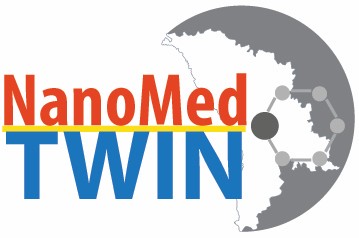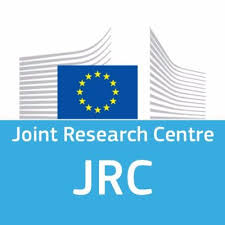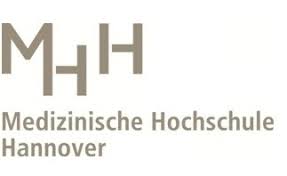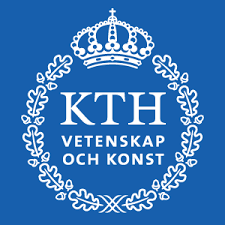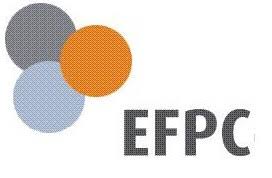|
The Technical University of Moldova is the only higher technical educational institution in the Republic of Moldova. At present, the University comprises 10 faculties, the teaching-didactic and engineering staff adds up to over 1000 lecturers. The 6 research centres of TUM successfully apply into practice the University’s research strategy, within numerous grants won via competition under Tempus/Tacis programmes, projects financed by the Civilian Research and Development Foundation-CRDF (USA), INCO-COPERNICUS, SCOPES, Science and Technology Centre in Ukraine (STCU), Bundesministerium für Bildung und Forschung (BMBF), Francophone University Agency's Projects. International cooperation in the educational and research spheres constitutes one of the University’s priorities. TUM has cooperation agreements with about 60 universities and scientific centres from Belgium, Republic of Belarus, Bulgaria, Canada, Germany, France, Netherlands, Romania, USA, Sweden, Ukraine, Spain, Russia, etc. The National Center of Material Study and Testing (NCMST) affiliated to the Technical University of Moldova is a leading research centre in the fields of material science and nanotechnologies. The Centre’s activity is focused on the development of novel nanomaterials and nanodevices for various applications, including electronics, photonics, plasmonics, environmental monitoring, bio-medicine etc. The centre plays a major role in education of a new generation of young specialists in materials science and nanotechnologies. The multifunctional character of the technological infrastructure addresses tasks related to important branches such as optoelectronics, photovoltaics, photonics, biotechnology, and biomedicine. More than 20 international projects and a series of bi-lateral projects have been implemented in collaboration with research teams from Germany, USA, Switzerland, UK, Spain, Romania, Russia, Ukraine, Belarus, etc. since its creation in 2002.
The University of Bristol (UNIVBRIS) has become a major force in the region's knowledge economy and has shown a strong long-term commitment to Nanoscience and related disciplines via approval of refurbishment of School of Physics (£45M), opening of the Nanoscience and Quantum Information building (£10M) and new Clean Room Facilities (£1.2M) to be shared between Science, Medical Sciences and Engineering. It invests heavily in cross-disciplinary research and training, and among others it is a host to Bristol Centre for Functional Nanomaterials (BCFN) and Elisabeth Blackwell Institute, which are excellent multidisciplinary platforms with established track record in promoting the research and industrial collaboration in nanoscience and biomedicine and training of young researchers via specially tailored MSc and PhD programmes. The BCFN is an established provider of high quality, interdisciplinary graduate training and was established through EPSRC funding in 2009. It offers bespoke taught and practical training in nanomaterials design, fabrication and characterisation through a network of >100 academics in four faculties as well as a core team led by Dr Annela Seddon. It has a dedicated teaching fellow and industry fellow to facilitate skills training and has to-date trained over 70 students through its MSc and PhD programme. It has strong partnerships with industry, particularly SMEs, and as well as delivering industrially funded studentships. It also offers a wide range of industrially relevant in-house expertise, technical capability and facilities. It works closely with companies (currently 17 industrial partners) to understand their research and development needs, and it has built long-term relationships with industry in a range of nanomaterials-relevant sectors. In addition, it provides students with training in enterprise and innovation, including commercialisation of their research. UNIVBRIS features The Elizabeth Blackwell Institute, which supports exciting and new developments in health research, including in electrical engineering, photonics, robotics, composite materials, nanoscience, and synthetic chemistry with particular focus is translation of knowledge into better health outcome, as well as BrisSynBio - the Bristol-based Synthetic Biology Research Centre, which trains the next generation of synthetic biologists in these approaches, to facilitate translation of fundamental synthetic biology research to industry and the clinic, and to do this within an innovative and responsible research framework.
The Joint Research Centre (JRC) is the science and knowledge service centre (JRC) of the European Commission. The directorate F Health Consumer and Reference Materials has a state-of-the-art equipped laboratory for Nanobiotechnology studies. Its institutional work focuses on a science-based understanding of nanomaterial properties and their interactions with biological systems in order to support the safe and sustainable development of nanotechnology. This is carried out by a multidisciplinary group of chemists, physicists, biologists, and materials scientists with extensive experience in the fields of nanobiosciences and materials science. With a wide range of facilities and cutting-edge instrumentation, the laboratory fosters interdisciplinary studies, with a special emphasis on characterisation of nanomaterials, nanomedicines, and advanced materials and their interactions with biological systems. JRC scientists are contributing to the reduction of uncertainties about the potential impact of nanomaterials on health and the environment and are supporting the development of a sound regulatory framework by providing informed science-based advice. Research focuses on the development of methods for the detection and characterisation of nanomaterials and on in vitro testing methods to analyse the interaction of nanoparticles with cells and proteins. The research approach integrates conventional in vitro toxicology assays, appropriately adapted for nanomaterials testing, with mechanistic studies performed using advanced cell sensing, imaging and labelling techniques as well as large-scale screening tools such as transcriptomics, proteomics and metabonomics and high content image analysis. The activities are supported by in-house expertise in the synthesis of nanomaterials and their careful physico-chemical characterisation in their pristine form and in the testing systems. This is a multidisciplinary effort between biologists, toxicologists, chemists and physicists. The work is carried out in the JRC's modern, well equipped research laboratories, and in close collaboration with universities and external laboratories. |
Hannover Medical School (Medizinische Hochschule Hannover, MHH) is one of the world's leading university medical centres and is internationally renowned for clinical and research excellence. Based on a strong interdisciplinary tradition, the MHH avails of strong collaborative links and networks with numerous academic and industrial research organizations worldwide, across the spectrum of basic, translational and clinical research. At the MHH, clinicians and academics cooperate closely to explore and understand the mechanisms of human diseases, developing innovative strategies for diagnosis, prevention and therapy, and working towards a rapid translation of innovative research findings into clinical practice. MHH research portfolio extends across a wide range of cutting-edge themes in medicine and life science, with a particular focus in our three key priority areas of i) immunity & infection, ii) transplantation and regeneration, and iii) biomedical technology and implants. These research priorities reflect the major clinical strengths which have led to clinical advances in novel treatment options based on chemical compounds, biomaterials, cell and gene therapy, tissue engineering and innovative implants, including hybrid approaches.
KTH Royal Institute of Technology (Swedish: Kungliga Tekniska Högskolan) in Stockholm is the largest and oldest technical university in Sweden. It is the highest ranked university of technology in northern Europe. No less than one-third of Sweden’s technical research and engineering education capacity at university level is provided by KTH. Education and research spans from natural sciences to all branches of engineering and includes architecture, industrial management and urban planning. There are a total of almost 11,500 first and second level students and almost 1,900 doctoral students. KTH has 4,900 employees. KTH is organized into 8 different schools at 4 different campuses. The Science School (SCI) comprises among other departments the Applied Physics department of ~180 people divided into 6 major units located at the Albanova campus as well as at the Electrum laboratory in Kista, 10 km north of Stockholm. The Kista units perform research in materials physics, nanotechnology, optics and materials science and chemistry. A main resource here is the Electrum Laboratory with a 1300 m2 cleanroom area and 1500 m2 additional laboratories. This facility is outstanding for fabrication and characterization in the nano and micro scale, supporting the whole chain from education, research and development, to prototyping and production. The cleanroom provides full CMOS and III-V process lines as well as various growth processes for InP, GaAs, GaN, SiC, Si and SiGe semiconductor structures. The Electrum cleanroom together with that at Albanova, featuring electron-beam lithography, are the two laboratories operated within the KTH node of Myfab – the Swedish research infrastructure for micro- and nanofabrication. The characterization laboratories outside the cleanroom comprises electron microscopes, X-ray characterization, scanning probe equipment, materials chemistry laboratories as well as several advanced optical characterization labs.
EFPC staff have strong technical backgrounds and are involved in projects that train and assist the participation of organisations in the Framework Program. EFPC have expertise in a wide area of science and technologies including the Biomedical, Nanomaterials, Nanoelectronics and ICT domains, and have participated in many FP projects, including as Coordinator and Ethical Manager. As ethical managers in FP projects, our responsibilities include: implementation of EU ethical screening requirements; monitoring for misuse of information; monitoring data collection activities; privacy and security aspects. EFPC runs the Finance Helpdesk www.finance-helpdesk.org which gives assistance on FP financial rules and regulations and produces and presents training courses all over Europe and beyond. Staff at EFPC participate in the Idealist 2018 project, responsible for quality control, and in the H2020 Hub-IT project which aims to build a Hub that will activate and improve constructive and co-creative interactions between SSH and ICT disciplines in developing and implementing a shared vision of inclusive ICT research and innovation. |
